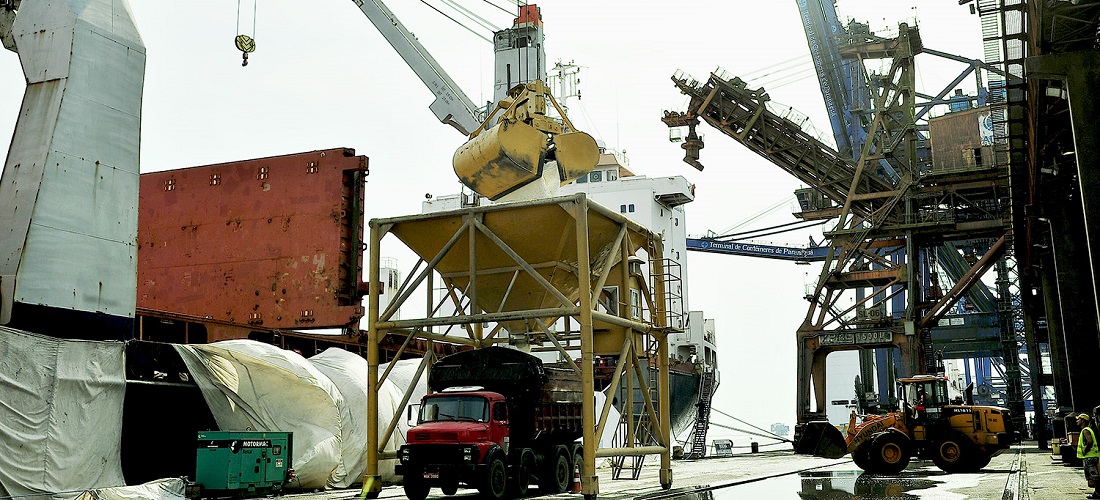
Brazilian fertilizer imports grew 18% in 2021
Feb, 15, 2022 Posted by Gabriel MalheirosWeek 202207
The growing export rates seen in Brazilian agribusiness in the last two years have encouraged the increase of fertilizer imports. DataLiner data show that, in 2021, fertilizer imports grew by 18.1% compared to 2020, which, in turn, had already increased by 13.2% from the year before.
The chart below shows Brazilian fertilizer imports over the last four years:
Brazilian fertilizer imports | Jan-Dec 2018 to 2021 | WTMT
Source: DataLiner (click here to request a demo)
According to the National Association of Fertilizers Diffusion (Anda in Portuguese), Brazil imports almost 85% of the fertilizer it consumes. The National Supply Company (Conab), on the other hand, points out that the State of Mato Grosso was the one that imported the most fertilizers among all Brazilian states. Mato Grosso is the largest grain producer in the country and receives fertilizers via Santos and Paranaguá.
The second-largest importer of fertilizers was Rio Grande do Sul, followed by Paraná, São Paulo, and Minas Gerais.
DatalLiner data show that the Port of Paranaguá continues to be the main gateway for the product in Brazil, although other ports have been gaining ground. The Port of Santos, for example, increased its share of imports, reducing the difference from 8% to 5% in relation to Paranaguá.
Check below the share of each port in fertilizer imports in 2021 and 2022. The data are from DataLiner:
Brazilian Imports of Fertilizers by Port| Jan-Dec 2021-2020 | WTMT
Source: DataLiner (click here to request a demo)
Change in suppliers
Still according to DataLiner, on top of the increased demand, the market also saw change in terms of the origin of the fertilizers imported. China, for example, exported 69.5% more of the product to Brazil in 2021 compared to the previous year, ahead of our main supplier, Russia, which has been limiting fertilizer exports. In November 2021, for example, the Minister of Agriculture, Tereza Cristina, went to the country to ensure compliance with existing contracts to supply potassium and phosphate fertilizers.
On February 2, Russia suspended exports of ammonium nitrate (NAM), also used as fertilizer. The country is currently the world’s largest producer of ammonium nitrate. According to information by the Tass agency, the government decided to suspend NAM exports to ensure the supply of the product in the Russian domestic market, especially for this harvest season, which farmers will bring forward because of the weather. Brazil imports 1.5 million tons of NAM every year. Approximately 98% of this volume comes from Russia.
Check below the origins of the fertilizer imported by Brazil in the last two years. The data is from DataLiner:
Countries from which Brazil imported the most fertilizers | 2021-2020 | WTMT
Source: DataLiner (click here to request a demo)
The fertilizer market will continue to face obstacles this year. Notwithstanding, according to information by CNN Brasil released this Tuesday, February 15, the federal government has a new National Fertilizer Plan ready to go with guidelines to orient investments and reduce the 85% dependence on imported inputs seen in Brazilian farming.
Brazil is the only country with a large scale of agricultural production that lacks autonomy in fertilizer supply, which appears to be a contradiction given the importance of Brazilian agribusiness in international trade.
A presidential decree with the main guidelines and goals for the project’s execution will be published soon, according to sources who participated in the discussion and elaboration of the plan. The goal will not be for the country to become self-sufficient but to reduce fertilizer imports to treat plantation areas by 60%.
-
Other Logistics
Jan, 03, 2019
0
ANTT extends deadline for clarifications regarding the North-South Railroad (FNS) concession
-
Economy
Jul, 24, 2023
0
Brazil expands exports to Asia beyond China
-
Grains
Aug, 09, 2022
0
Anec raises Brazil’s corn export forecast for August
-
Ports and Terminals
Dec, 28, 2020
0
SPA launches public consultation on FIPS, the internal railway of Port of Santos

